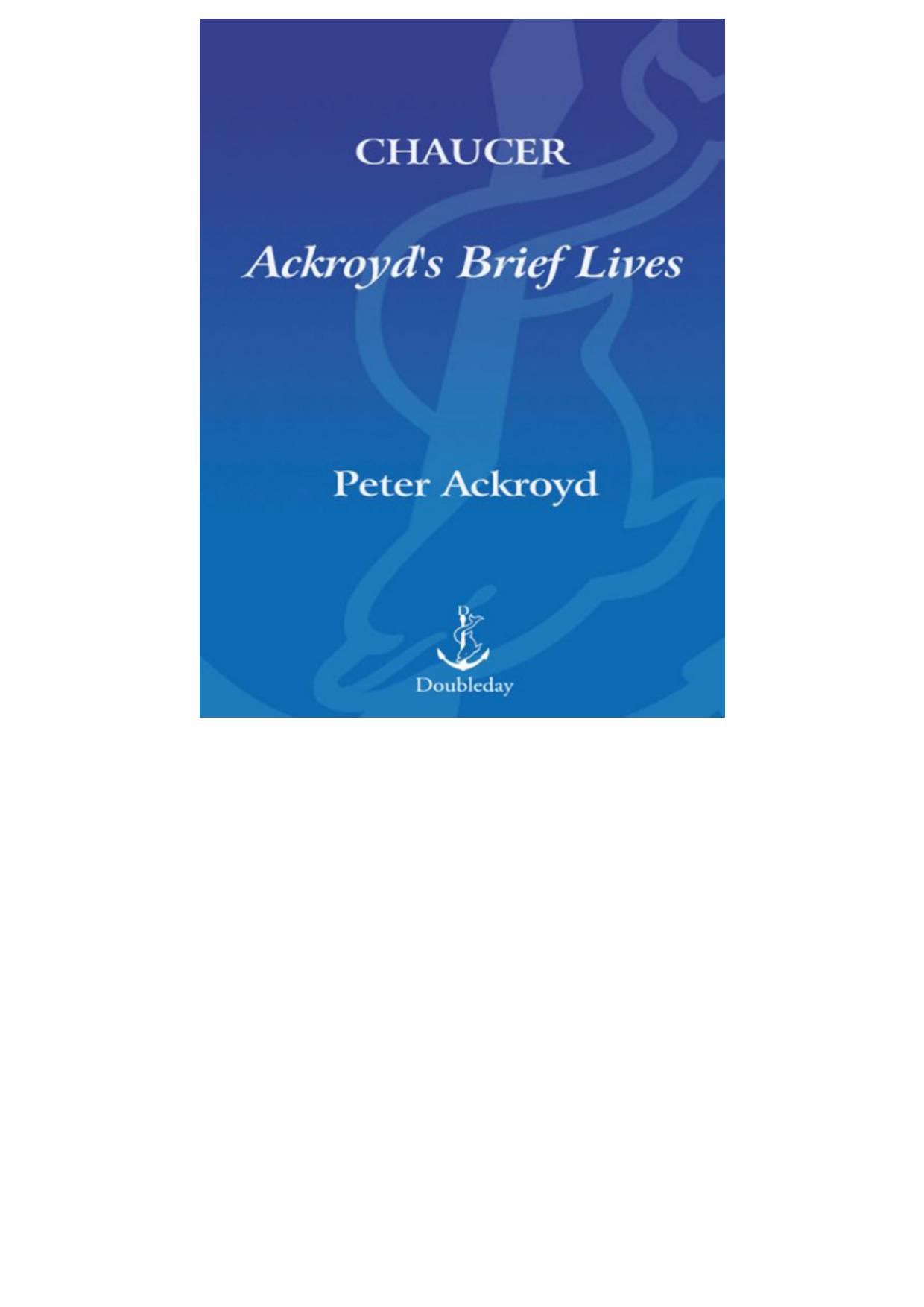
Chaucer
Ackroyd's Brief Lives
کتاب های مرتبط
- اطلاعات
- نقد و بررسی
- دیدگاه کاربران
نقد و بررسی

October 18, 2004
Series of brief bios are old hat by now, but perhaps only the prolific novelist/historian Ackroyd would singlehandedly undertake an entire series—on English cultural figures—himself. This slim volume is not so much an account of the life of Geoffrey Chaucer (1343?–1400) as a consideration of his role in shaping England's national identity. The poet is hailed as the "progenitor of a national style," and deft literary analysis explicates Chaucer's innovations while acknowledging the influence of other poets. (Readers will also be glad to know that an appendix provides modern translations of Chaucer's extensively quoted Middle English.) Ackroyd doesn't ignore the biographical side of the story; much is made of Chaucer's position in the royal court, which provided the financial means to live comfortably while writing his verse—and indirectly introduced him to the work of Boccaccio, one of his most significant influences. Early vivid passages discuss how Chaucer's descriptions of medieval London can still resonate with modern readers, linking the poet to the "eternal vision" that has been a central theme in nearly all of Ackroyd's work. Thus the work can serve as an effective introduction to its author as well as its subject—and this series may be more approachable for many readers than Ackroyd's weighty histories London
and Albion.
21 b&w illus.

December 15, 2004
Award-winning British critic/novelist Ackroyd (Albion: The Origins of the English Imagination) presents a cogent yet entertaining biography of medieval English poet Geoffrey Chaucer. Ackroyd largely recapitulates the current, accepted view of Chaucer as the father of English poetry while also revealing Chaucer's more colorful personal history, including his royal service, a "career marriage," a murky rape charge, and the apocryphal nature of his deathbed renunciation. Readers also get a glimpse of the great poet's literary influences, including his exposure to French and Italian works. The result is an illuminating work free from both unnecessary academic arcana and the speculative excesses of John Gardner's The Life and Times of Chaucer . This concise yet riveting biography will appeal to general readers. Undergraduates are better served by Donald R. Howard's equally entertaining but more comprehensive Chaucer: His Life, His Works, His World; for strict scholarly treatments, see Martin M. Crow and Clair C. Olson's Chaucer Life-Records and Derek Pearsall's The Life of Geoffrey Chaucer: A Critical Biography . Highly recommended for all public libraries.--Lee Ehlers, Greenville Cty. Lib. Syst., SC
Copyright 2004 Library Journal, LLC Used with permission.

Starred review from January 1, 2005
Richard West's big " Chaucer" (2000) is period history and literary analysis as much as biography, implicitly because the established facts about the first great English poet are so scanty. The little book that inaugurates the Ackroyd Brief Lives series, however, feels very much like a biography. Ackroyd, whose 11 novels include, most recently, " The Clerkenwell Tales " [BKL S 1 04], set in Chaucer's London, uses his skills as a limner of fictional characters to produce, out of what is known about the activities of the diplomatic and customs-official roles Chaucer played under Richard II, and what his writings convey about his temperament, a vibrant portrait of a great writer who was "circumspect, and reticent, to the end." That is, he was a man who looked around, because he had to watch his back in government service, and didn't put himself forward, because the conspicuous got cut down. While he looked around, of course, Chaucer observed all kinds of people, high and low, and found all kinds of books from the advanced literary cultures of the day (French and Italian)--which people and books he transmuted into his great narrative poems, the fonts at once of English poetry and English fiction. Ackroyd has set the bar very high for subsequent books in his new series. (Reprinted with permission of Booklist, copyright 2005, American Library Association.)

























دیدگاه کاربران